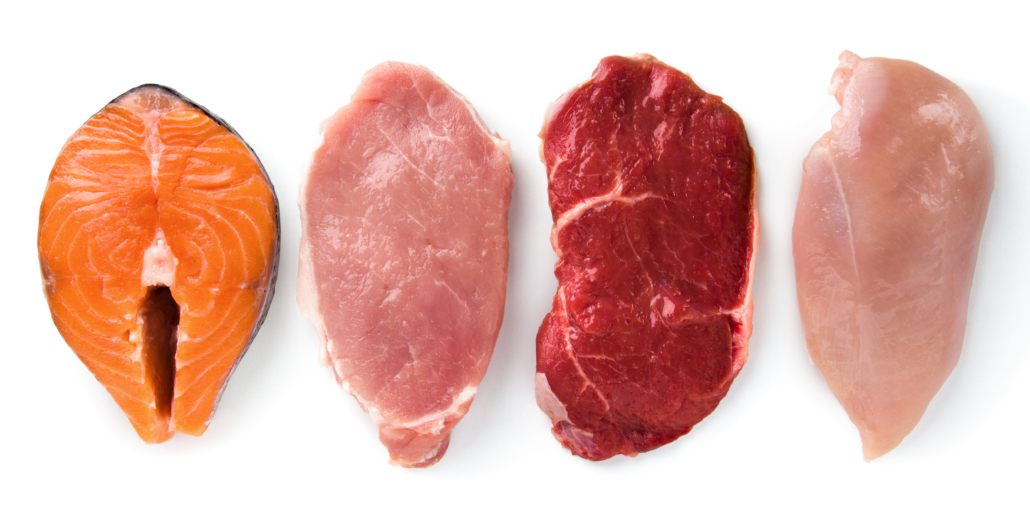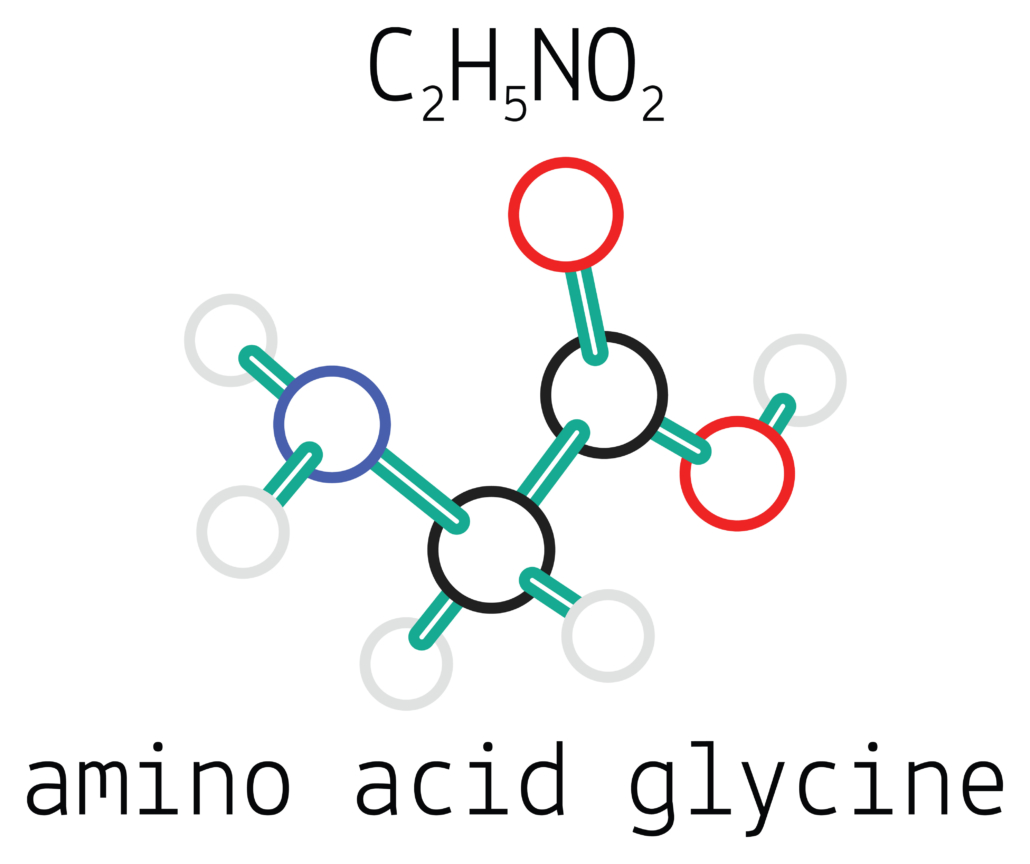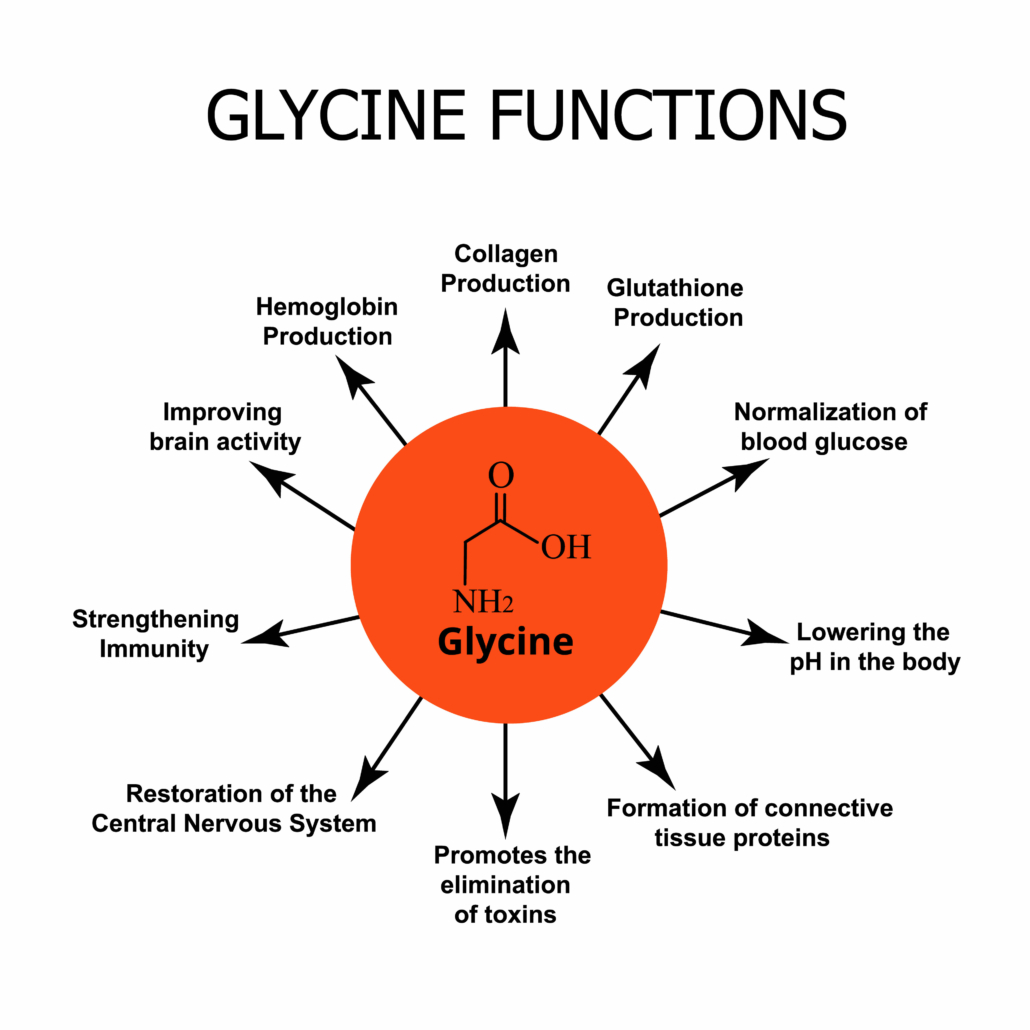We include products in articles we think are useful for our readers. If you buy products or services through links on our website, we may earn a small commission.
Top 12 High Glycine Foods and Health Benefits

Glycine is an important amino acid that plays crucial roles in various bodily functions, from supporting muscle growth to promoting better sleep and cognitive function. Though the body can produce glycine on its own, increasing glycine intake from high glycine foods can support numerous health benefits.
In this blog article, we’ll explore the benefits of glycine and the top foods that are rich in glycine, empowering you to enhance your diet for greater health and vitality.
Table of Contents
What is Glycine?

Glycine is a simple amino acid, which means that it is one of the building blocks of proteins.
Though small in size and molecular weight, glycine plays a major role in many important physiological processes.
Considered non-essential because your body can synthesize glycine from other amino acids, getting glycine from the food you eat is still important for the health of your muscles, liver, skin, while providing numerous other benefits.
Benefits of Glycine

More than just a protein building block, glycine is one of the most versatile amino acids. Let’s take a brief tour of the specific benefits that can be enhanced by consuming high glycine foods.
Calming Neurotransmitter
Some amino acids, including glycine, act as neurotransmitters. The main amino acids we get from muscle meats are considered “excitatory” to the central nervous system. And though this is healthy, our bodies need a balance between excitatory and inhibitory amino acids.
Glycine has inhibitory effects and normalizes GABA levels to improve mood and promote relaxation and calmness.
The inhibitory effects of glycine have been studied for their positive impacts on neurological disorders like Parkinson’s and Alzheimer’s.
Glycine for Sleep
The inhibitory effects of glycine, along with its ability to increase serotonin factors in numerous studies showing that glycine enhances sleep quality, helps people fall asleep faster, and decreases daytime drowsiness.
A 2016 study found that taking 3 grams of glycine helped improve sleep along with daytime cognitive ability and better memory.
Improves Digestion and Nutrient Absorption
Your body uses glycine to create bile acids in the liver. Adequate bile acids are critical to the ability to digest fats and absorb fat-soluble vitamins in the small intestine.
This fat-digesting factor makes high glycine foods particularly important on high-fat, low-carb diets like keto and carnivore.
Glycine has also been found to protect against gastric ulcers.
Protects Against Oxidative Stress
Glycine is a precursor to a powerful antioxidant called glutathione. By helping to restore glutathione, glycine foods enhance the body’s defense against oxidative stress, which is associated with numerous autoimmune and inflammatory diseases, such as cancer, heart disease, and dementia.
Through its positive effects on glutathione, glycine foods benefit nearly every cell in the body.
Glycine Neutralizes Methionine
When we eat a lot of muscle meat we are consuming another amino acid called methionine. Methionine has been shown to temporarily increase levels of yet another amino acid, homocysteine, high levels of which have been linked with cancer.
Glycine has been shown to significantly reduce homocysteine levels after protein-rich meals.
It’s important to note that studies exploring possible links between methionine and cancer find that in order to increase base levels of homocysteine, we need a very high dose of pure methionine– around 500% of normal daily intake.
Even high methionine doses, like you’d get consuming even a high meat animal-based diet, are not enough to increase homocysteine levels to dangerous thresholds.
Though there’s no convincing evidence healthy people eating diets high in muscle meat increase baseline levels of homocysteine, if you’re still concerned, give yourself peace of mind by increasing your intake of high glycine foods.
Promotes Skin Health
Glycine is a building block of collagen, a protein that supports skin health
High glycine foods can boost collagen, helping to maintain skin hydration, firmness, and elasticity.
Collagen also helps heal wounds and may protect the skin against the effects of aging.
Top Glycine Foods
To ensure and increase the above-mentioned benefits of glycine, focus on the following glycine-rich whole foods.
1. Gelatin and Collagen powders
Gelatin is actually a whole food made by boiling animal bones, cartilage, and connective tissues. Then, they’re dried and ground into a fine powder. All that collagen-rich animal product yields a tremendous amount of glycine.
A single ounce of gelatin provides 5334mg of glycine.
Collagen powder is almost identical to gelatin in terms of glycine content. But it is processed in a way that makes it more digestible.
A single ounce of collagen powder provides 5202mg of glycine.
3716mg per 20grams (28grams in ounce)u collagen powder
2. Ground Beef Patty
Ground beef is one of the most underrated whole foods. It’s loaded with complete amino acids along with a complex of B vitamins, iron, zinc, and selenium.
6 ounces of ground beef provides 3091mg of glycine.
3. Lamb Shoulder
Lamb is loaded with 2951mg of glycine per 6 oz. serving.
In addition to copious amounts of glycine, lamb provides an abundance of the “master antioxidant” glutathione along with the highly beneficial, anti-cancerous fatty acid called Conjugated Linoleic Acid (CLA).
4. Ground Turkey
Ground turkey is a budget-friendly whole food that provides 2944mg per 6 oz serving.
5. Skirt Steak
Skirt steak provides 2491gm 6 oz
6. Pork Tenderloin
Pork, an often underrated yet nutritious whole food, provides 2478mg per 6 oz serving.
7. Pork Chops
Pork chops provide 2472mg per 6 oz serving.
8. Ribeye Steak
Ribeye steak is the centerpiece of most animal-based diets, and for good reason.
Ribeye provides 171% of your RDV in zinc and 242% of vitamin B12 and 112% of selenium. Together these nutrients fight depression, stabilize mood, support reproductive health, and boost immune function.
6oz of ribeye provides 2410mg of glycine.
9. Roast Duck
Duck straddles the divide between red and white meat, but it doesn’t equivocate when it comes to glycine, providing 2237mg per 6 oz serving.
10. King Salmon
King salmon is loaded with 2232mg of glycine per 6 oz. In addition, King salmon provides over 300% of B12 per serving.
11. Roast Chicken Leg
Roast chicken leg provides an abundance of protein, including 2038mg of glycine.
12. Bone Broth
Bone broth is a fantastic source of collagen and glycine, with 1700 mg per cup.
Top Glycine Foods: The Bottom Line
Glycine is an abundant amino acid that supports numerous critical physiological functions, including skin health, stable mood, digestion, and sleep. Consuming foods high in glycine will ensure that these functions will get the fuel they need.




















